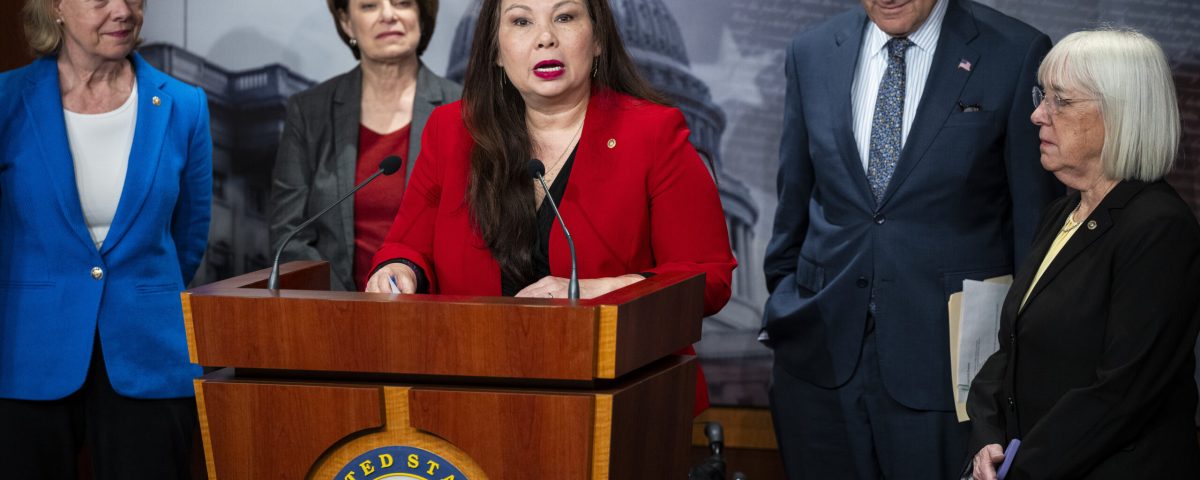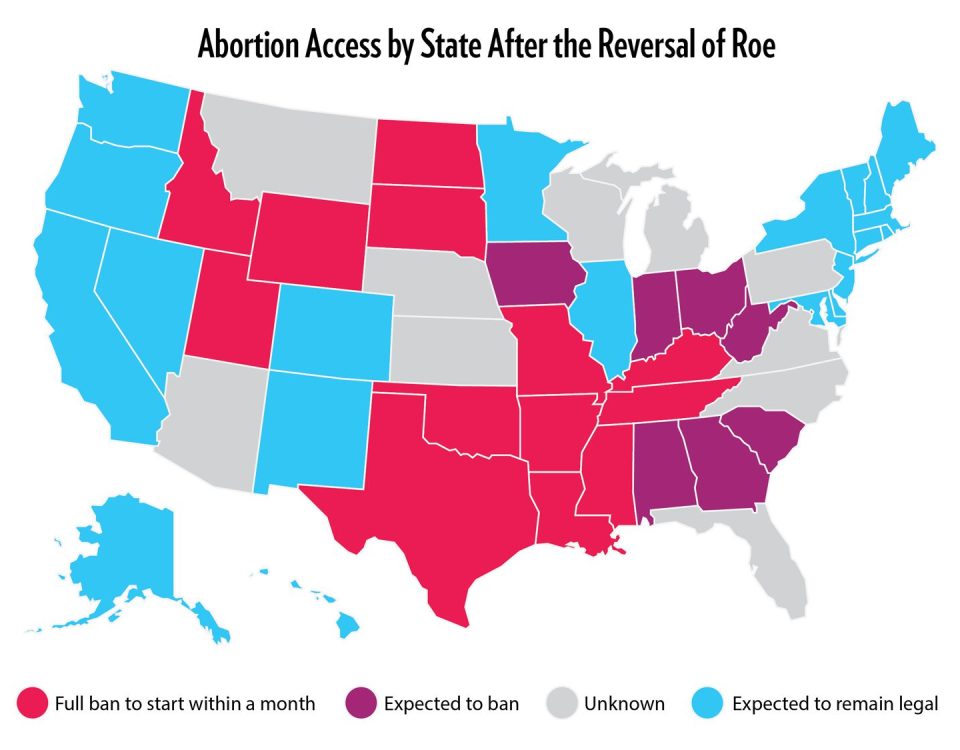Does Trump Want to Ban IVF? Unpacking the Debate
April 13, 2025
Does TRICARE Cover IVF? Your Guide to Fertility Benefits for Military Families
April 13, 2025Why Did Republicans Block the IVF Bill?
In recent years, in vitro fertilization (IVF) has become a hot topic in American politics, especially after Senate Republicans blocked a bill aimed at protecting access to this fertility treatment. If you’ve been following the news—or even just scrolling through social media—you’ve probably seen headlines about this showdown. The bill, known as the Right to IVF Act, was pushed by Democrats to ensure nationwide access to IVF and require insurance coverage for it. But when it came time to vote in 2024, most Republicans said “no,” leaving many people confused and frustrated. Why would a party that claims to support families and “pro-life” values block something that helps couples have kids?
The answer isn’t simple, and it’s tied to a mix of politics, beliefs, and legal debates that have been simmering for years. In this deep dive, we’ll unpack the reasons behind the Republican decision, explore what’s at stake for families, and look at some angles you might not have seen in the headlines. Whether you’re someone hoping to start a family, a curious voter, or just trying to make sense of the chaos in Washington, this article will give you a clear picture of what’s going on—and why it matters.
The Big Picture: What Happened with the IVF Bill?
In September 2024, Senate Democrats brought the Right to IVF Act to the floor for a vote. This wasn’t the first time—Republicans had blocked it before, back in June. The bill promised to make IVF a federal right, meaning no state could ban it, and it would’ve forced insurance companies to cover the pricey treatments. For millions of Americans struggling with infertility (about 1 in 6 couples, according to the CDC), this could’ve been a game-changer.
But the vote didn’t go as planned. It ended 51-44, falling short of the 60 votes needed to beat a filibuster. Only two Republicans—Senators Lisa Murkowski of Alaska and Susan Collins of Maine—crossed party lines to support it. The rest, including big names like Ted Cruz and even Donald Trump’s running mate JD Vance (who skipped the vote), either voted “no” or stayed silent.
On the surface, it’s puzzling. Republicans often talk about being “pro-family” and supporting policies that help people have kids. So why block a bill that does exactly that? To figure it out, we need to dig into the details—starting with what Republicans themselves said about it.
Reason #1: They Called It a Political Stunt
One of the loudest arguments from Republicans was that the bill wasn’t a serious attempt to protect IVF—it was a trap set by Democrats to make them look bad before the 2024 election. Senate Minority Whip John Thune called it “another show vote,” while Senator Mitt Romney told Politico it was just a “messaging opportunity” with “poison pills” Republicans couldn’t swallow.
What does that mean? Basically, they thought Democrats were playing politics. With the election just weeks away, reproductive rights—like abortion and IVF—were already huge issues. After the Supreme Court overturned Roe v. Wade in 2022, Democrats have been hammering Republicans on anything tied to women’s health, hoping to sway voters. Republicans argued the IVF bill was less about helping families and more about painting them as anti-family if they voted no.
But was it really just a stunt? The bill’s sponsor, Senator Tammy Duckworth (who used IVF to have her own kids), didn’t see it that way. She told CBS News it was a chance for Republicans to “put their votes where their mouths have been.” And polls show most Americans—over 80%, according to Gallup—think IVF is “morally acceptable.” So if it was a trap, it was one with real stakes for real people.
What You Can Do About It
- Stay Informed: Follow updates on reproductive rights bills. Websites like Congress.gov track what’s happening in real time.
- Talk to Your Reps: If IVF matters to you, call or email your senators. They’re more likely to listen when voters speak up.
Reason #2: The Fetal Personhood Debate
Here’s where things get tricky—and it’s a big reason the bill hit a wall. Many Republicans support the idea of “fetal personhood,” which says life begins at conception, even for embryos created in a lab. This belief comes from their anti-abortion stance, rooted in religious and moral views held by groups like the Southern Baptist Convention.
IVF, though, doesn’t fit neatly into that worldview. During the process, doctors often create multiple embryos, implant the healthiest ones, and discard the rest. If embryos are “people” with rights, destroying them could be seen as wrong—or even illegal. That’s exactly what happened in Alabama in 2024, when the state Supreme Court ruled that frozen embryos are “children” under the law. Clinics paused IVF services, scared of lawsuits, until the state passed a quick fix to shield them.
The Right to IVF Act didn’t address this head-on, and that spooked Republicans. They worried it could override state laws or force doctors to destroy embryos against their beliefs. Senator Ted Cruz, for example, offered his own IVF bill that avoided these issues by just punishing states that ban it outright. Democrats shot that down, saying it didn’t go far enough.
The Science Behind It
A 2023 study from the American Society for Reproductive Medicine found that 60-70% of IVF embryos don’t survive to implantation anyway—nature’s way of sorting things out. So the “personhood” debate isn’t just philosophical; it clashes with how IVF actually works.
What This Means for You
- ✔️ Check Your State Laws: If you’re considering IVF, look up your state’s stance on embryos. Nearly a dozen states have fetal personhood laws that could complicate things.
- ❌ Don’t Assume Access Is Safe: Even if IVF is legal now, future rulings could change that fast.
Reason #3: They Didn’t Like the Insurance Mandate
Another sticking point? Money. The bill didn’t just protect IVF access—it also required insurance companies (and some government plans) to cover it. IVF isn’t cheap—a single cycle can cost $12,000-$20,000, per the American Pregnancy Association, and most people need multiple tries. For Republicans who hate “unfunded mandates” (rules that cost money without saying who pays), this was a red flag.
Senator Bill Cassidy from Louisiana called it an “election-year bill” that ignored practical concerns. Others, like Cruz, argued there’s no real threat to IVF access anyway—Alabama fixed its mess, right?—so why force a big, expensive law? They’d rather let states or private markets handle it.
But here’s the flip side: infertility affects millions, and cost is the #1 barrier. A 2024 survey by Resolve: The National Infertility Association found 70% of patients skip IVF because they can’t afford it. Democrats, like Duckworth, say federal coverage would level the playing field, especially for veterans and military families who face higher infertility rates due to service-related injuries.
Quick Poll: What Do You Think?
Should insurance cover IVF?
- A) Yes, it’s a basic healthcare need.
- B) No, it’s too expensive for taxpayers.
- C) Maybe, but only for certain groups (like veterans).
Drop your answer in the comments—I’m curious where you stand!
A Hidden Angle: Religious Freedom Worries
One thing you won’t see in every news story is how religion played a quiet role. Some Republicans feared the bill could trample on “religious liberty.” How? If embryos are people, and the bill forced doctors or clinics to destroy them, it might violate their faith. A Senate GOP aide told the Wall Street Journal this was a dealbreaker—states should be free to protect those beliefs.
This ties back to groups like the Heritage Foundation, which push for strict IVF rules based on embryo rights. Even though most Republicans say they support IVF (Trump himself bragged he’s a “leader” on it), they’re caught between their base’s religious wing and public opinion. It’s a tightrope they didn’t want to walk with this bill.
A Real-Life Example
Take Sarah, a 34-year-old from Texas. She and her husband saved for years to afford IVF after a miscarriage. When their clinic warned that new state laws might limit how many embryos they could create, they panicked. “We just want a baby,” she told me in an email. “Why is politics making this harder?” Her story shows how these debates hit home.
The Trump Factor: Mixed Signals
Donald Trump added another layer of confusion. In August 2024, he surprised everyone by saying he’d make IVF free—either through insurance or government funding—if he won the election. It was a bold promise from a guy who’s bragged about ending Roe v. Wade. During his debate with Kamala Harris, he doubled down, calling himself a “leader on fertilization.”
So why didn’t Republicans jump on board? For one, Trump didn’t push them to. His plan was vague—no details on how to pay for it—and some saw it as campaign talk, not a real policy. Plus, his party’s split: fiscal conservatives hated the cost, while religious conservatives disliked IVF’s embryo issue. Blocking the bill let them dodge the mess while still nodding at Trump’s rhetoric.
Fun Fact
Trump’s promise echoed an idea from Duckworth’s bill—ironic, right? But without his muscle behind it, Republicans stuck to their guns.
What’s Missing from the Conversation?
Most articles stop here, but there’s more to unpack. Let’s look at three things you won’t find in the top Google results—fresh angles that add depth to this story.
1. The Veteran Angle: A Forgotten Group
The Right to IVF Act wasn’t just about civilians—it aimed to help military families, too. Veterans and active-duty members face infertility at higher rates (up to 20%, per a 2023 VA study) due to combat injuries or stress. Duckworth, a vet herself, wanted to let them freeze embryos before deployment. Republicans barely mentioned this, but it’s a huge oversight—our troops deserve better.
Action Step: If you know a vet struggling with infertility, point them to VA fertility benefits. They’re limited now, but pressure on Congress could expand them.
2. The Economic Ripple Effect
Blocking IVF access doesn’t just hurt families—it hits the economy. A 2024 report from the Brookings Institution estimated that infertility costs the U.S. $5 billion a year in lost productivity and healthcare. If more people could afford IVF, they’d stay in the workforce longer and spend more as parents. Republicans love economic growth—why not frame IVF as a win for that?
Mini Calculation: If 1 million couples used IVF successfully over a decade, and each kid boosted GDP by $1 million over their lifetime (a conservative estimate), that’s a trillion-dollar impact. Food for thought!
3. The Global Comparison
America’s IVF debate looks wild from the outside. In countries like the UK, Canada, and Australia, IVF is partly covered by public health systems, and access is a non-issue. A 2023 OECD study found the U.S. lags behind in fertility support, with only 15 states mandating some insurance coverage. Republicans could’ve used the bill to catch up—but they didn’t. Why not learn from allies?
Checklist: How Does Your State Stack Up?
- ✔️ Does it require insurance to cover IVF?
- ✔️ Are there laws protecting embryo use?
- ❌ Any pending bills that could limit access?
What Happens Next?
The bill’s dead for now, but this fight’s not over. Democrats plan to bring it back if they win big in 2024—Duckworth even hinted at ditching the filibuster to make it happen. Republicans, meanwhile, might push narrower fixes, like Cruz’s bill, to look pro-IVF without the baggage. And with Trump’s promise floating around, 2025 could get messy.
For families, the stakes are immediate. Clinics in states with fetal personhood laws are nervous, and costs keep climbing. A 2024 19th News poll showed 60% of Americans want federal IVF protections—will Congress listen?
Your Turn: A Quick Quiz
- What’s the biggest reason Republicans blocked the bill, in your view?
- A) Politics
- B) Fetal personhood
- C) Cost
- Should IVF be a federal right? Why or why not?
Share your thoughts below—I’d love to hear them!
How You Can Take Action
This isn’t just a Washington story—it’s personal. Here’s how to get involved:
- Educate Yourself: Read up on IVF laws in your state. Sites like Resolve.org break it down simply.
- Speak Up: Write to your senator. A quick note—“I support IVF access”—can pile up and make noise.
- Support Others: Donate to infertility nonprofits or share stories like Sarah’s to spread awareness.
The Bottom Line
Republicans blocked the IVF bill because of a messy mix: political games, deep beliefs about embryos, and worries about cost and freedom. It’s not that they hate IVF—most say they like it—but this bill didn’t fit their vision. For Democrats, it’s a chance to rally voters; for families, it’s a lifeline on hold.
What’s clear is this: IVF isn’t just a medical procedure—it’s a lightning rod for America’s biggest divides. And until those gaps close, millions of hopeful parents are stuck waiting. So, what do you think—can we find common ground, or is this another stalemate? Let’s keep the conversation going.




